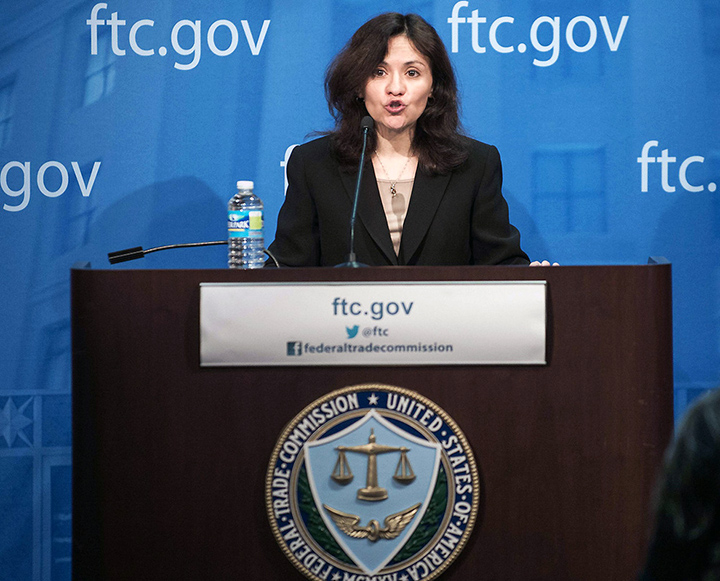
Edith Ramirez, Chairwoman of the Federal Trade Commission (FTC), said today that she believes there will be Congressional action to safeguard the rights of consumers in the handling and protection of their personal data.
"I think we will ultimately see a law in this area," said Ramirez who spoke at the opening day of the Privacy Identity Innovation Conference in Palo Alto, California.
Ramirez's comments came on the same day that the Pew Research Center released the results of a survey which reported that more than 90 percent of Americans believe that they've lost control over how their personal data is being collected and used by companies. "It says that there is still a lot of work that needs to be done," said Ramirez, when asked about the Pew report's findings.
The FTC leader's remarks touched on a wide range of subjects in dialogue with Politico's Tony Romm. Asked whether she would support recent European efforts to guarantee the consumer's right to be forgotten, Ramirez expressed concerns that such a move would clash with existing U.S. law.
"I think that a very expansive notion of the right to be forgotten in the U.S. would clash with the First Amendment," said Ramirez. "There are very serious constitutional issues that need to be considered."
Despite her expressed reluctance today to embrace the European model for wholesale deletion of private and personal online data, Ramirez has been vocal recently in outlining her concerns about the mass collection of data from the increased tide of mobile devices entering the market. "This issue is going to become even more serious when we start seeing more consumers using connected devices at home," said Ramirez.
The FTC chairwoman, who joined the commission in 2010, mentioned their recent prosecution of a home security camera company as an example of her agency's vigilance in consumer protection. In a settlement announced last February, TRENDnet was found by the FTC to have engaged in lax security practices when their SecurView cameras' software flaws resulted in the hacking of hundreds of their customers.
Ramirez believes that examples such as these will force technology companies to be more careful in how they protect data from their customers, based on a critical need to maintain consumer confidence in their products. "When people experience those kinds of negative consequences, that is going to have an impact on all this amazing innovation," Ramirez told the gathering. "We will take action when we see that companies have not put proper security measures in place."
The FTC has also been taking a closer look at the practices of data brokers, consumer data businesses who gather readily accessible information provided by online users through surveys, search activity, credit cards, social networks, and government records. The commission issued a report earlier this year which confirmed that data brokers were collecting massive amounts of personal information with very little transparency.
"The sheer amount of data that these brokers have about people in the U.S. is simply staggering," said Ramirez. She called for the brokers to create a centralized site where consumers can view the data being collected about them and give citizens an "opt out" choice if they do not want their information gathered and sold.
Looking back at her four years on the FTC, Ramirez remarked at how "the tenor of the dialogue on privacy has changed dramatically." What has not changed is the absence of Congressional action, something that the FTC chairwoman clearly believes and hopes will finally happen.














